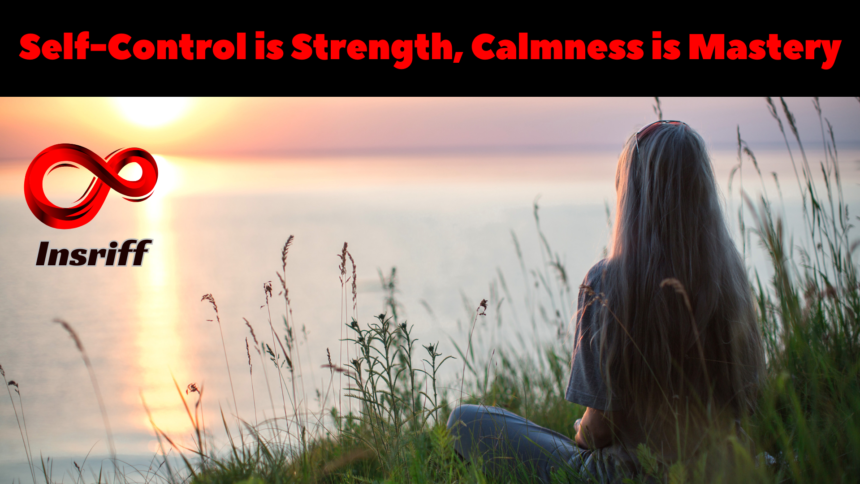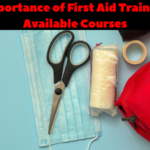In today’s fast-paced world, staying calm and in control can be a challenging experience. However, the reality at the back of the pronunciation, “self-control is strength. calmness is mastery. you – tymoff,” It is profoundly empowering. Learning to grasp self-control and calmness can change our lives, supporting us to end up resilient, confident and more fulfilled. Let’s break down why self-control is essential and how calmness may be an effective device and a way to domesticate those traits for your own reality.
Understanding Self-Control as Strength
Self-control is frequently considered the capacity to withstand temptations but it’s plenty extra than that. It’s the inner energy to make decisions based on long-term advantages as opposed to short-term impulses. Imagine you’re at work, feeling annoyed with a co-employee’s moves. Without self-discipline, you might snap or reply harshly, but when you have strength of will, you may pause, think, and reply in a way that maintains peace and professionalism. That’s a good example of self-control.
Critical Benefits of Self-Control:
- Better Decision Making: When you practice self-control, you are making decisions that align with your values and desires. You keep away from impulsive movements that you might later regret.
- Improved Relationships: People are drawn to people who manage conditions gracefully and persistently. Self-control allows you to speak calmly, even in tense moments. It also strengthens personal and professional relationships.
- Increased Resilience: Life will usually deliver challenges, but self-discipline allows you to face them without giving in to stress or frustration. This strength builds a strong foundation for a balanced existence.
Read A True Relationship is Two Imperfect People Refusing to Give Up –TYMOFF
Calmness as Mastery: Why It’s Powerful
Calmness is often mistaken for weakness or passivity. In reality, calmness is a complicated skill that facilitates living composedly under pressure. Mastery of calmness means being capable of navigating demanding conditions without losing your internal peace. It is not about ignoring troubles; it’s about managing them with clean and focused thoughts.
Why is Calmness Essential?
- Enhanced Focus: When you’re calm, your thoughts are clearer. It allows you to be conscious of what honestly matters. You’re less likely to get distracted by using minor issues and much more likely to find answers.
- Effective Problem-Solving: Calmness helps you better understand system facts and make sound choices. It prevents knee-jerk reactions that may make situations worse.
- Inner Peace: Calm thoughts foster a feeling of peace. You become less reactive to outdoor impacts, which could significantly enhance your usual well-being.
The Connection Between Self-Control and Calmness
Self-control and calmness cross hand in hand. Think of strength of mind as the engine that drives your movements and calm as the guidance system that leads you in the right direction. When mixed, they create a powerful pressure that permits you to navigate life’s demanding situations gracefully and efficiently.
For example, imagine handling grievances at work. Self-control will save you from reacting defensively while calmness will help you pay attention, compare the feedback and respond constructively. Together, these qualities can rework a potentially negative experience into a growth opportunity.
Practical Ways to Build Self-Control
- Set Clear Goals: Knowing what you want to acquire can boost your self-discipline. Set private goals and remind yourself of them regularly to avoid distractions.
- Practice Delayed Gratification: Small physical games in delaying gratification, like skipping dessert for healthy dreams or saving cash can construct your self-control muscle over time.
- Mindfulness Practices: Mindfulness lets you have a look at your mind without appearing on them. Practicing mindfulness each day lets you pause earlier than reacting.
- Reflect on Your Actions: Take time every day to reflect on conditions in which you succeeded in controlling your reactions and in which you struggled. This reflection will help you enhance over the years.
How to Cultivate Calmness as Mastery?
- Breathing Exercises: Deep breathing activates your body’s relaxation response and helps you stay calm during traumatic moments.
- Meditation trains your thoughts to stay present, which can reduce anxiety and increase calmness. Just a few minutes each day can make a big difference.
- Limit Exposure to Negative Triggers: If favorable conditions or people continuously purpose pressure, locate ways to reduce their effect on your existence.
- Focus on Solutions, Not Problems: When faced with demanding situations, direct your mind toward finding solutions instead of dwelling on the issues. It is the best way to divert your mind.
Why These Qualities Matter in Everyday Life?
In our daily lives, we constantly face demanding situations, conflicts and temptations. The power to live composed in those moments doesn’t simply enhance the high quality of our lives. It also enhances our self-control and calmness with others. With the strength of willpower and peace, you’ll notice human beings are more likely to trust you, listen to your evaluations and look at you as a source of guidance.
Final Thoughts
“self-control is strength. calmness is mastery. you – tymoff” These are not simply words but a path to personal empowerment and growth. Building self-discipline and calmness doesn’t appear in a single day; however, you can transform your attitude with commitment and everyday practice. By choosing to respond rather than react, staying grounded in peace and performing with motive, you could create a life in which you’re without a doubt.









